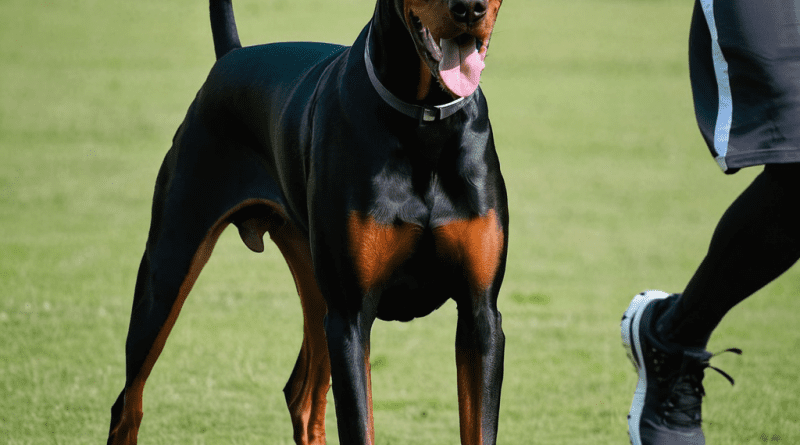Understanding Doberman Behavior: Key Insights for Potential Owners
If you're intrigued by the idea of welcoming a Doberman into your life, it's crucial to understand the nuanced behavior of this remarkable breed. The Doberman is known for its intelligence, energy, and loyalty, but recognizing their specific needs and behaviors is paramount for a harmonious bond between you and your new furry friend.
Hyperactivity and Exercise Needs
One of the most evident traits you will encounter in Dobermans is their hyperactivity. These dogs are bursting with energy and require substantial exercise to remain happy and healthy—typically one to two hours daily. However, there's more to the story than just their breed. American Dobermans often require slightly less activity compared to European Dobermans, which are known for higher exercise demands.
Furthermore, the breeder's selection can influence your Doberman's energy levels. Some breeders focus on high-drive working lines, producing dogs that need constant stimulation and tasks. For laid-back households, this can present challenges. However, Dobermans generally thrive in lively environments with plenty of activities and companions, whether it's human or canine.
Pro-tip: Mental stimulation is just as important as physical exercise. Puzzle toys, games, and command training can significantly mollify a Doberman's overactivity by providing them with essential mental challenges.
Dealing with 'Klepto-Canines'
Dobermans have a somewhat mischievous habit of stealing items ranging from socks to children's toys. This behavior often stems from boredom or a lack of sufficient outlets for their intelligence. They can be quite sneaky, swiping items and scurrying off to enjoy their 'treasures' in peace. To counter this, provide your Doberman with engaging toys and puzzles to keep their curious minds occupied.
Leash Reactivity
Innately protective, Dobermans can exhibit leash reactivity, primarily because they are highly attuned to their owner's emotions. If you grow tense on a walk, your Doberman will likely sense it and respond protectively. Because their options are limited to fight or flight when on a leash, they may react aggressively since they can't flee.
To mitigate this, remain calm and composed, letting the leash slacken a bit. Your relaxed demeanor will transmit to your Doberman and reduce occurrences of leash reactivity.
Puppy Nipping and Biting
Doberman puppies, like many breeds, go through a nipping and biting phase due to teething and their energetic nature. This stage is typically more intense for Dobermans, making consistent training crucial to prevent future behavior issues. Understanding that this is a phase and dedicating time to proper training can smooth this process considerably.
Understanding Doberman Anxiety
General anxiety is another issue you might face with a Doberman. This breed can suffer from separation anxiety and neediness due to their 'velcro dog' nature—they love to be by their owner's side. High exercise demands and routine changes can worsen their anxiety. Ensuring regular interaction and exercise can help in preventing these stressful behaviors.
Trainability and Loyalty—No Need for Concern
Now, on a more positive note, Dobermans are highly trainable and intensely loyal, making them wonderful companions. They rank as the fifth most intelligent breed globally and are eager to please their owners. This intelligence translates into an incredible ability to learn and follow commands.
Additionally, Dobermans are not known to be escape artists. They prefer to stay close to their homes and owners, which means you're less likely to encounter issues with them running off - although responsible containment is always recommended.
The challenges faced by Doberman owners are surmountable with appropriate training methods that align with the breed's natural instincts. Remember, Dobermans aren't your average dog and shouldn't be trained as such. Tailored techniques are necessary for their unique characteristics.
Embracing a Doberman entails commitment to their exercise, mental stimulation, and specialized training needs. Understanding these aspects of Doberman behavior goes a long way in ensuring a fulfilling and joyous relationship with your dog.
Final Thoughts
In summary, the Doberman is a breed with distinct characteristics that make for an engaging and loyal companion. With the right approach towards training and understanding their behavioral traits, you can foster a deep, rewarding bond with your Doberman that stands the test of time.
If you've found this information intriguing and are thirsty for more insights into the lives of our beloved four-legged companions, follow Petsfi for additional posts like this. Our dedicated team, from nutritionists to long-time pet owners, are here to share experiences, tips, and advice to help you navigate the wonderful world of pet ownership.




